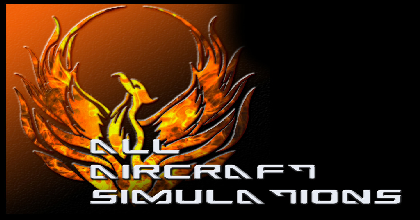13.05.2008, 05:08
I've searched a bit and not found an explanation anywhere except regarding the "value" field. If there is already one, please point me to it! If you have corrections, additions or clarifications, feel free to mention them here.
This my interpretation of the preset (.prs) files usage, with regard to the engine RPM samples. I haven't put much time into verifying it, so don't treat this as such!
The [sample..wav.rpm] sections of the preset files set how each engine sample plays, and changes with rpm.
As the engine's RPM changes in game, IL2 fades various clips in and out, whilst varying the pitch of the samples being played according to the current engine RPM. To accommodate unpredictable and non-linear variations of engine sounds, the designers use at least four samples, from idle up to high RPM.
Samples are named with the approximate RPM of the engine that they're meant to be played at. eg "*_1000.wav" is an idle and low rpm sound, then 1500, 2000, and usually 2700 for full RPM (even if the engine happily runs at 3700).
The lumpy idle of aggressively cammed aero engines is heard using the "*_1000" sample. From 1500 revs and upward they should sound pretty smooth.
So here's what I think the parameters in the "[sample.sabre_1000.wav.rpm]" mean. (sabre engine @ 1000 rpm, for example)
minlo - min RPM that the low frequencies are heard
minhi - min RPM that the high frequencies are heard
maxlo - maximum RPM that the high frequencies are heard
maxhi - maximum RPM that the high frequencies are heard
value - volume of the sample, 1-6. 6 being the loudest.
pmax - normal RPM for the sound sample. (ie, if you play the sample in windows, it's the RPM that it sounds like) Raising this number reduces the pitch of the in-game sound, lowering it raises the pitch of the sound, for any given RPM.
You can use audio editing software such as free Audacity ( http://audacity.sourceforge.net/ ) to take samples from real engine sounds, and then raise or lower their pitch, apply filters, etc. (suggestion - use the FFT filter, not the equaliser for EQ curves, and use the low pass or high pass filters in preference to those, if that's all you want. Use the low pass filter to remove microphone distortion present in the external sabre sounds in 0.9x sound mod, for example)
Don't be surprised if your samples sound different in-game. IL2 seems to remove a lot of the lower frequencies, and boost the higher ones, whilst adding repetitive whining sounds that weren't present when you played the sample in VLC.....
453_Whittle
This my interpretation of the preset (.prs) files usage, with regard to the engine RPM samples. I haven't put much time into verifying it, so don't treat this as such!
The [sample..wav.rpm] sections of the preset files set how each engine sample plays, and changes with rpm.
As the engine's RPM changes in game, IL2 fades various clips in and out, whilst varying the pitch of the samples being played according to the current engine RPM. To accommodate unpredictable and non-linear variations of engine sounds, the designers use at least four samples, from idle up to high RPM.
Samples are named with the approximate RPM of the engine that they're meant to be played at. eg "*_1000.wav" is an idle and low rpm sound, then 1500, 2000, and usually 2700 for full RPM (even if the engine happily runs at 3700).
The lumpy idle of aggressively cammed aero engines is heard using the "*_1000" sample. From 1500 revs and upward they should sound pretty smooth.
So here's what I think the parameters in the "[sample.sabre_1000.wav.rpm]" mean. (sabre engine @ 1000 rpm, for example)
minlo - min RPM that the low frequencies are heard
minhi - min RPM that the high frequencies are heard
maxlo - maximum RPM that the high frequencies are heard
maxhi - maximum RPM that the high frequencies are heard
value - volume of the sample, 1-6. 6 being the loudest.
pmax - normal RPM for the sound sample. (ie, if you play the sample in windows, it's the RPM that it sounds like) Raising this number reduces the pitch of the in-game sound, lowering it raises the pitch of the sound, for any given RPM.
You can use audio editing software such as free Audacity ( http://audacity.sourceforge.net/ ) to take samples from real engine sounds, and then raise or lower their pitch, apply filters, etc. (suggestion - use the FFT filter, not the equaliser for EQ curves, and use the low pass or high pass filters in preference to those, if that's all you want. Use the low pass filter to remove microphone distortion present in the external sabre sounds in 0.9x sound mod, for example)
Don't be surprised if your samples sound different in-game. IL2 seems to remove a lot of the lower frequencies, and boost the higher ones, whilst adding repetitive whining sounds that weren't present when you played the sample in VLC.....
453_Whittle
